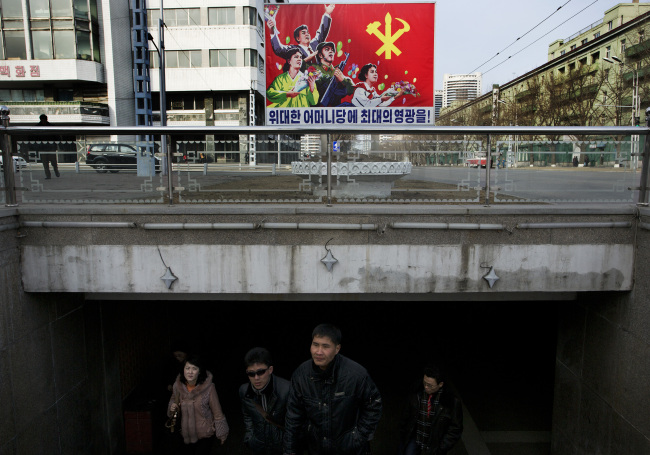
Calls are growing for the international community to act to stop human rights abuses in North Korea under the “Responsibility to Protect” norm, after a U.N. panel accused the dictatorial regime of crimes against humanity this week.
Talk of the need to apply the R2P has long persisted. But skepticism still lingers over its viability, given differences among major powers about its implementation.
On Monday, the U.N. commission on human rights in North Korea revealed the outcome of its yearlong inquiry into the inhumane practices by officials under the direct control of the autocratic ruler Kim Jong-un.
The investigation found evidence of torture, execution, arbitrary incarceration, deliberate starvation, enslavement and other appalling practices by the North Korean officials.
Michael Kirby, the chair of the commission, also wrote a letter to the despotic ruler, warning that Kim could face a trial as a national and military leader at the International Criminal Court for the series of crimes.
“Too many times in this building there are reports and no action. Well, now is a time for action. We can’t say we didn’t know,” Kirby told reporters at a panel organized for a press conference to reveal the investigation results.
“The gravity, scale and nature of these (human rights) violations reveal a state that does not have any parallel in the contemporary world.”
The R2P calls on the international community to take responsibility to protect citizens of a country that fails to safeguard its people from atrocities such as genocide, war crimes, crimes against humanity and ethnic cleansing.
The interventionist concept was first conceived after concerns rose over the international community’s failure to properly handle genocides in Rwanda in 1994 and in the Bosnian town of Srebrenica the next year.
Following a heated international debate on the concept, the U.N. adopted the R2P in 2005. The R2P was first applied in conflict-laden Libya, when the U.N. Security Council approved military action based on the norm.
Despite the mounting calls for international intervention to preserve the universality of human rights, some veto-wielding powers of the U.N. apparently differ over how and when to invoke the R2P because of their strategic calculations.
Analysts said that Russia and China appear reluctant to see the R2P concept take firm root in the international community, considering that they have been denounced for using coercive means to stamp out separatism in Chechnya, and in Tibet and Xinjiang, ostensibly for national security.
Skepticism about applying the R2P also stems partly from the suspicion that major powers could encroach upon others’ sovereignty under the pretext of the norm to maximize their national interests rather than pursue humanitarian causes.
In 2011, the North Atlantic Treaty Organization intervened in the conflict in oil-rich Libya. But no major power has come forward to directly intervene in the civil war of Syria, a country which has little strategic value, observers pointed out.
Given the close relationship between Beijing and Pyongyang, it would not be easy to apply the R2P to the North Korean situation, analysts presumed. But bringing international attention again to humanitarian crises in the isolated state would put a great deal of pressure on the dynastic regime in Pyongyang, they said.
“As real politics is at play at the U.N. Security Council, it would be difficult (to apply the R2P to North Korea) given that any veto would thwart its implementation,” said Kim Yeoul-soo, political science professor at Sungshin Women’s University.
“But the panel’s activities to collect information about the North’s human rights abuses and prevent inhumane practices would continue and they would apply enormous pressure on Pyongyang.”
By Song Sang-ho (sshluck@heraldcorp.com)
-
Articles by Korea Herald




















